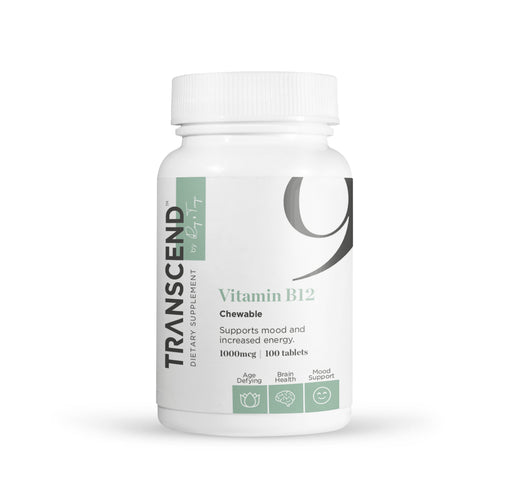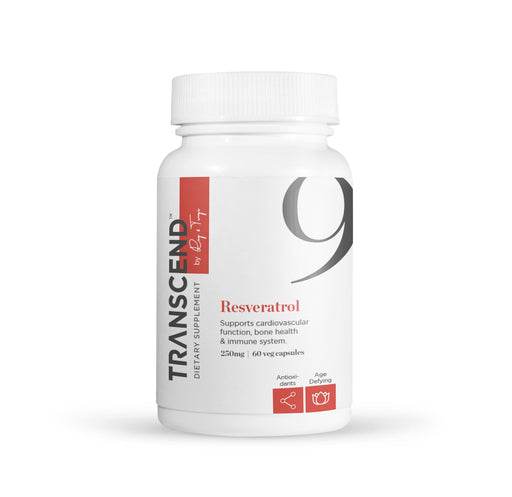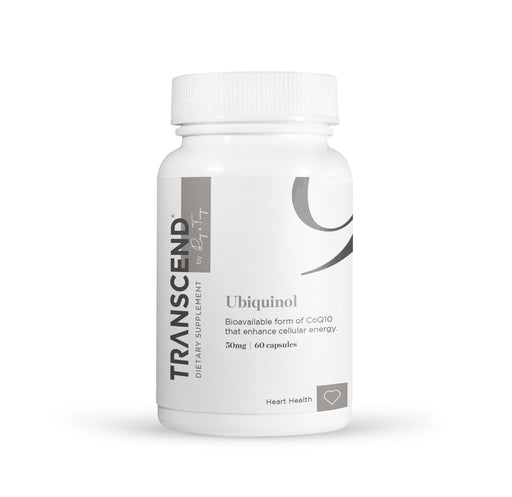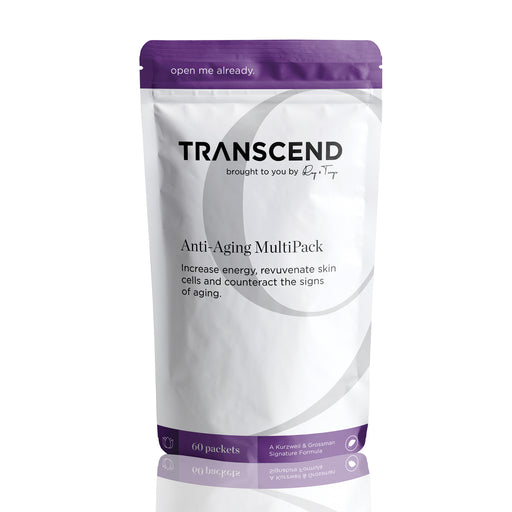
Vitamin B-12, Sublingual
Increased energy Improve mood Fight fatigue Common deficiency Better absorption Vitamin B12 (also called cobalamin) is one of eight water-solu...
View full details
With the choices we have available today, making the right food decisions can be a daunting task. There are so many possibilities to choose from that seem to do the same thing: feed you.
We're used to seeing unblemished produce at the grocery store year-round. To meet these expectations, producers try to grow picture-perfect yields, increasing their output and shipping their produce long distances, so food reaches the consumer looking farm-fresh and just-picked.
Unfortunately, this type of food production has come to rely on growing methods that can cause health deficiencies for ourselves and the planet. Let’s be honest—if we’re going to live forever, we’ll need a place to call home, too.
Not all foods are created equal; that’s why eating organic can make a difference for your health and longevity.
Here are five ways eating organic makes a difference in helping us live long, vibrant, healthy lives.
None of us would deliberately drink weed killer or eat lead, let alone feed it to our families. So why do we allow an arsenal of over 320 pesticides in the food we eat?
In theory, these substances do the food system good. Pesticides kill bugs and rodents that can devour a crop. Fungicides prevent fungi from damaging plants. Herbicides clear fields of weeds that compete with crops for soil, nutrients, water, and sunlight. However, these chemicals build up in our bodies and the environment, and their effects can be disastrous.
Carbendazim—used on produce such as apples, snap peas, strawberries, cucumber, grapes, pre-packed salads, and spinach—is one of the most popular fungicides in the world. However, evidence links it to developmental damage that could lead to cancers, developmental problems, congenital disabilities, and reduced sperm quality in men.
Likewise, Glyphosate—the active ingredient in Roundup and the world’s most widely used herbicide—has been deemed by the World Health Organisation’s cancer agency as “probably carcinogenic to humans.”
Meat-based proteins, such as pork, beef, poultry, and fish tend to contain even higher levels of these toxins than grains, fruit, and vegetables. As animals are higher up the food chain, chemicals become concentrated in the food they eat, primarily in their fatty tissues. Many animal-based proteins—especially chicken and beef—are also fed substantial amounts of hormones and antibiotics to promote growth and stave off disease in inhumane and crowded living conditions.
When you consider the above, as well as the wax and toxic chemicals sprayed on conventional food to improve shelf-life and maintain that "fresh from the field" appearance, being careless with our food doesn't sound like a risk worth taking.
While it’s impossible to avoid all of these toxins, we can implement Step 9 of TRANSCEND—Detoxification—and limit the amount going into our food system by choosing organically grown food. Farmers will produce what we demand, and as people who care about the longevity and healthspan of our lives, organic is our better option.
Heavy metals, such as mercury, lead, arsenic, and cadmium, are toxic and can lead to abnormal immune function, learning disorders, and neurodegenerative diseases. Toxic heavy metals also increase free radical activity, which is a significant contributor to rapid aging.
Mercury is particularly toxic as it suppresses immune system function and is a known neurotoxin. It's found in high concentrations in swordfish and shark (avoid at all costs), and to a lesser extent in halibut, Alaskan cod, North American lobster, and tuna (eat periodically.)
We recommend keeping a low mercury diet, limiting your consumption of fish and seafood to species that are lower in mercury, and ideally, wild-caught. Wild fish are relatively low in fat and high in omega-3 fats, which can help promote improved mental health, eyesight, brain health, and so much more. Wild fish also lack the antibiotics and additives often found in farm-raised fish, making them naturally organic.
Genetically modified organisms, or GMOs, are plants and animals that have been created by combining the DNA of different species in a way that could not occur in nature or by traditional cross-breeding.
Genetic engineering alters crops to make them weather- and pest-resistant. This may sound good in theory, but the "-cides" used in many GMO experiments can be extremely dangerous for humans. For example, Bt-toxin—the pesticide in GMO Corn—combines with bacteria to kill insects by destroying the lining of their digestive tracts. The poison is not specific to insects, though; it also pokes holes in human cells, damaging the intestines and causing leaky gut.
GMOs have been used commercially for only ten years. But a growing body of evidence, such as that published by the American Academy of Environmental Medicine (AAEM), warns that “it is biologically plausible for Genetically Modified Foods to cause adverse health effects in humans.”
Organic plants are, by definition, non-GMO; they occur naturally. When you choose organic meat, you’re also guaranteed that it's GMO-free, because organically reared livestock cannot be fed genetically modified feed.
For a better chance at a long and healthy life, make good food choices: eat organic and avoid GMOs.
Unfortunately, the government doesn’t subsidize organic food like they do conventional, and thus organic costs more to produce. In reality, conventionally grown food actually costs the consumer more in the long run by charging us "externalities," or consequences that are not directly reflected in the cost of the goods.
Many of the externalities of conventionally raised food show up as effects on our environment:
By nurturing a food system that advocates and necessitates biodiversity and natural foodways, we can nurture a more resilient and stable food system and healthier food supply.
If nothing else, organic food tastes better!
Have you ever bitten into an off-the-vine tomato? Made a salad with fresh, baby arugula? Chopped cloves of garlic from a local farm? The flavours of local, organic produce put the stuff at the grocery store to shame.
Eating organic helps people eat better because it tastes delicious and encourages us to enjoy more locally grown, organic fruits and vegetables. With options like these, it’s easier to steer clear of processed foods and ingredients that lack flavour, nutrition, and substance.
Some types of conventionally grown produce are much higher in pesticides than others, while others are low enough that buying non-organic is relatively safe. We wish everyone could choose to eat entirely organic, though we know this may be unrealistic, depending on access and income. That’s why we advocate doing what you can, where you can.
STEP 1: Get the facts
Print off a copy of the Clean Fifteen and the Dirty Dozen, two reference guides maintained each year by the Environmental Working Group (EWG). These guides highlight produce with the most dangerous chemicals and point you toward options that are safer for your vitality and longevity.
STEP 2: Shop local & in season
Produce is cheapest, freshest and most nutrient-dense when it’s in season and freshly picked.

Increased energy Improve mood Fight fatigue Common deficiency Better absorption Vitamin B12 (also called cobalamin) is one of eight water-solu...
View full details
Combat internal aging Protect cells from radiation damage Increase antioxidant capacity Take with lecithin for better absorption Optimal dose for...
View full details
2022 update: Future batches of this product will use a Ubiquinol product that is a greenish capsule rather than a red softgel Bioavailable form o...
View full details
A Kurzweil + Grossman Formula Continued Synergy between Science and Convenience Convenient dosage packets Top anti-aging products Increase energy...
View full details
Leave a comment